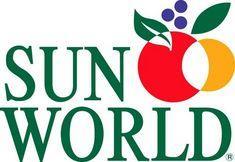
Following protracted litigation over the Sugraone grapevine, a seedless grape variety owned by Sun World International, LLC for more than 30 years, a federal court judge has found Sun Pacific Farming Cooperative, Inc. and related parties liable for fraud and conversion for Sun Pacific’s unlawful taking of Sun World’s property.
After making the landmark decision, the Court ordered Sun Pacific to stop growing and destroy the Sugraone variety grapevines in question and pay damages of nearly $300,000 to Sun World.
The judgment stems from Sun Pacific Farming Cooperative, Inc. v. Sun World International, Inc. as well as from Sun World International, Inc. v. Sun Pacific Farming Cooperative, Inc., Sun Pacific Farming Co., Berne H. Evans III and Richard Peters. The cases were filed in August and September 2001 in the United States District Court for the Eastern District of California.
After a trial on the merits, United States District Court Judge Robert E Coyle of the Eastern District of California issued the final judgment on June 16, 2006, declaring that Sun World has legal title to the Sugraone vines at issue and that Sun Pacific “committed fraud by removing and retaining Sugraone plant material.”
Judge Coyle noted that “the harm suffered by Sun World resulted from fraud and deceit and was not caused by mere accident,” and he ordered that Sun Pacific must destroy the subject Sugraone grapevines under the supervision and observation of a Sun World representative within sixty days of entry of the judgment.
Judge Coyle also ordered Sun Pacific to pay Sun World compensatory and punitive damages and costs totaling over $285,000. Sun Pacific has appealed the judgment. Sun World intends to vigorously litigate the appeal and expects to prevail.
“Sun World invests millions of dollars to develop, produce, market and protect its proprietary fruit varieties,” its chief executive officer Bruce Burton said. “We are heartened by this important ruling and believe that it sends a strong message that private property - whether a grapevine or a valuable piece of artwork - is just that and never free for the taking.”



